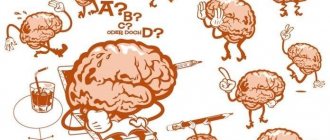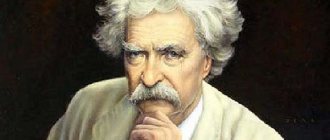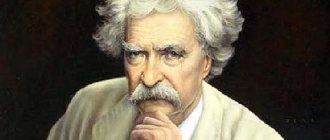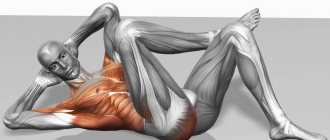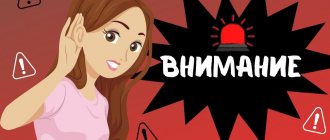In this article we will tell you:
- Basic properties of attention
- Dependence of attention on the type of temperament
- Signs of trouble focusing
- Main causes of absent-mindedness
- Ways to increase focus
Imagine: you have been given an assignment that needs to be completed quickly and efficiently; for this you need to mobilize all your strength, tune in and concentrate. But there is a problem with this point. You may be distracted by someone or you may be preparing for a long time, thinking through the task down to the smallest detail. Have you ever found yourself in a similar situation? It probably doesn’t cause the most pleasant feelings, because in the end you are forced to postpone the assigned task, which gives rise to dissatisfaction with yourself.
Don’t be upset, this happens to everyone, it’s just that some people don’t talk about it, not considering it a problem. You can control your level of concentration and always do your job perfectly at the right time! And today we will talk about what focus is and how to develop the habit of concentrating on the primary task.
How to develop and increase concentration
Concentration is the conscious focusing of attention on a selected object. It can be an object, image, idea, situation and much more. The mind purposefully selects from all possible points the one to which it will direct its attention. From this we can conclude that attention is selective, just like concentration. Otherwise, concentration is also called focus of attention. In order to increase concentration, you need to analyze what components it consists of and to improve which parts of it you need to put more effort into.
Human concentration
In textbooks on theoretical and practical psychology, they write a lot on the topic of human concentration, because wherever you look, we use it everywhere. Our daily life is not complete without concentration and focus. Even in order to take simple actions, make a decision, or find a creative idea, you need:
- Concentration of consciousness, or otherwise a volitional effort, in order to direct attention in a given way.
- The next task is to maintain attention on the selected task or subject.
- While maintaining attention on a specific object, the process of information processing occurs - thinking, searching for options, exploring problems.
- Coming out of the state of concentration means successful completion of the task and marks the end of the process. The focus of attention is limited in time, but you can learn to develop it and make it longer, so that in one session of concentration your work becomes more productive and leads to high-quality results.
Sense organs
A person is given five senses that react to certain stimuli. The signal then goes to the brain, which analyzes it and issues a conclusion.
For example, the eyes perceive electromagnetic waves, based on the analysis of which the brain will issue a conclusion about the color and appearance of objects. We hear with our ears through sound waves. But we are also given the senses of touch, taste and smell. If, as a result of injury or birth defects, any of the five senses is missing, then the rest try to compensate for this loss by developing above average, as if trying to complement our picture of seeing the world.
For example, a person’s blindness is compensated by a stronger development of hearing and touch. Thus, the sense organs given to us by nature are not fully used by us; they have development reserves. Let's be persistent and increase their potential with daily training. Let's learn to see and hear what was previously hidden from us due to our own laziness.
How to improve your concentration
There are various methodologies to improve concentration. They use special techniques. But before we talk about concentration techniques, we need to consider the factors that negatively affect the mind and its ability to concentrate.
Agree that if our mind were not constantly distracted by external stimuli and were more focused, then we would not be looking for ways to increase the efficiency of attention.
Often we study ways to improve attention not because we want to develop it, but because we notice how it has decreased. The length of time during which we are accustomed to concentrating on something has rapidly decreased, and we know the reason for this deterioration.
Human dependence on means of communication
The development of the Internet, mobile technologies, social networks, fragmented communication, and the habit of working in multi-task mode lead to a decrease in attention span and subsequently even to attention deficit disorder.
Separately, I would like to highlight the so-called multi-task ability - performing several tasks at the same time. The new concept of efficiency, which is still almost extolled to the skies and considered one of the characteristics of effective work, in fact leads to the opposite - to disorganization, lack of focus, increased stress and a drop in the quality of task performance.
Mobile devices and endless chatting seem like cute and fun entertainment or a common means of communication in professional activities. However, they bring little benefit to the human psyche. The negative impact of new technologies has long been scientifically proven. But who cares, when a large number of modern people cannot live without checking messages on social networks and instant messengers every hour.
It has already become a kind of addiction. But it is precisely the dependence on technology that creates the appearance of action, the illusion of the fullness of life. If we exclude this component, what will remain? Emptiness, when a person is finally left alone with himself, then he does not know what to do with himself. Thoughts are spinning in your head, you need to come up with something again, another action, what to do, where to go, what music or movie to entertain yourself with again.
Man has already forgotten what silence is. In real external life it does not exist and never existed. What about the inner world? Is there silence there? It would seem a strange question - we don’t talk to ourselves. This is where we are wrong. We're still talking. And all without exception. Listen to your thoughts at this moment. What are you thinking about? What is your mind telling itself? This is how the endless dialogue with ourselves continues, and we don’t even notice it, deafened by the outside world and the noise of its entertainment.
Establish control over your thoughts
Thoughts can appear independently of our will. However, it is quite possible to direct them in the right direction. Having noticed that the thought process has moved on to another topic, you should either take a break or discard thoughts that interfere with your work . Regular training will help you quickly direct your thoughts in the right direction.
Thus, the ability to concentrate helps to achieve the goal. It all depends on your mindset to win. Consistency, perseverance and patience will help you overcome the obstacles that arise in life and prevent the situation from getting out of control.
To test your level of concentration, do the “Line” exercise.
You will need a blank sheet of paper and a pencil. Start drawing the line slowly. All thoughts should be focused only on this process. As soon as an abstract thought appears, draw a small peak. This is reminiscent of a cardiogram. The number of peaks indicates the appearance of extraneous thoughts. It is considered that concentration of attention is good if not a single peak is recorded on the line within three minutes.
Methods of concentration
A huge number of methods of concentration are aimed at narrowing perception and directing the area of attention along a clearly limited channel. This, of course, makes sense if we want to continue to transform ourselves in the image and likeness of a well-oiled machine. On the contrary, if the goal of our search for the right method is also to improve ourselves as an individual, then we need to approach the choice of methods more responsibly and find ones that would be aimed at the comprehensive development of attention and other cognitive abilities. At the same time, we will not only improve our concentration, but also direct our efforts to improve ourselves as individuals through the study of our spiritual essence. A person’s deep awareness of himself as a unique personality is inseparable from the process of self-knowledge.
Medications
How to increase your concentration? There are several effective pharmaceutical products that have almost no or minor side effects.
- Glycine is a popular drug, especially among students. It relieves stress and increased nervous excitement, improves brain performance.
- Vitrum Memory is recommended to be taken if intellectual abilities and attention deteriorate. This herbal medicine supplies the brain with oxygen, increasing blood circulation in this organ.
- Undevit - a dragee based on a complex of vitamins A, B, C, E, P, produces a versatile effect.
- Aminalon restores nervous processes and removes toxins that form in the brain from the body.
- Bilobil is recommended for insomnia and decreased intelligence, as well as for getting rid of fear and anxiety. The drug improves oxygen supply to the brain.
- Intellan is a herbal preparation useful for depression, decreased intellectual capabilities and forgetfulness.
- Ginkgo biloba is recommended for memory and attention, insomnia and dizziness.
Exercises for concentration
In the practice of yoga, which is completely dedicated to understanding one’s essence, much attention is paid to the study of the human psyche, the processes of cognition and the development of spirituality. In order to illustrate what has been said, we will provide a short list of exercises and techniques that contribute to the development of a person’s intellectual and mental abilities.
Meditation
Meditation promotes the development of conscious attention, analytical thinking, intensification of empirical experience and knowledge of oneself as a spiritual entity united with the whole world. Types of meditations useful for mastering in the initial stages of self-knowledge:
- Trataka
- Analytical
- Dynamic
- Vipassana.
In preparation for meditation, you can practice dharana. This is concentration on an object followed by disidentification of oneself with sensory experience (only for the duration of practice).
Pranayama
It makes sense to practice control techniques and concentration on breathing immediately after meditation or simultaneously with its development. Pranayama is a great way to bring your attention to the process of breathing. With its help, you can not only completely restore lost concentration, but also immerse yourself in your inner world and better understand yourself. Four types of pranayama that are best to start practicing:
- alternate breathing - Anuloma Viloma;
- intermittent breathing - Viloma;
- “square” breathing - Samavritti;
- extended breathing - Apanasati Hinayana.
Ways to concentrate
Stopping internal self-talk is the most effective method for concentrating the mind and clearing the mind. Usually this method is not covered in special literature devoted to a person’s work on general efficiency and self-development. Instead, preference is given to lower-order techniques that increase concentration by 20 percent. The efficiency of such programs and methods for developing concentration is very low.
But the results are presented to the public as outstanding; the course participants need to be given a sense of pride in themselves. Therefore, by setting the bar lower, it is much easier to achieve what is stated in the program. If you set higher goals for yourself and think about how to radically increase the power of concentration, then you need to work on yourself. It all starts from the beginning, with introspection, awareness of yourself as a person and what qualities you would like to develop.
You need to create an image of yourself, how you would like to see yourself in the future. When such an image is formed, its mental picture appears, then you can begin to work on acquiring the desired qualities that need to be developed.
Many people say that they have no concentration - what to do in this case
A large number of people ask the question: “What to do if there is no concentration?” We have already figured out the reasons for the lack of concentration. We need to start solving the problem in order to minimize the impact of distractions on the psyche:
- try to establish temporary control over your stay on social networks;
- spending time with friends face to face;
- increase the time you are present in real life;
- devote more time to activities outside the sphere captured by the Internet;
- reduce the use of mobile devices;
- increase physical activity;
- find a new hobby and devote more time to it.
In order to implement an action plan to reduce the time spent on the Internet and, therefore, transfer the sphere of communication into the real world, where the interlocutors are located opposite each other, participation in joint events and retreats is well suited.
Methods of concentration
If you are very determined, then you can arrange a kind of communication “diet” or, even better, a “fast”. It looks like this:
- you are completely disconnected from the outside world - no media, instant messengers, communication with friends;
- stay in silence, isolated from external stimuli;
- practice meditation, which helps to establish internal silence;
- initiate spiritual practices, which helps to establish a connection with the inner “I”, reunite the disconnected parts of the internal image and self-understanding.
As a result of all this, you will experience changes in your perception of reality. Lost concentration will return again because you will learn to control your thoughts. You will begin to be aware of them. This is what meditation teaches us. You will be able to monitor the direction of your attention and clearly notice those moments when it is about to be distracted. You will be able to return it in the direction you need and stop worrying in vain about your inability to concentrate.
The determining factor in the focus of attention is curiosity.
It is impossible to achieve concentration of thoughts without choosing a goal of attention. By choosing what you need to focus on, realizing your goals, all the “why” and “what for” you want to concentrate on, it will become much easier for you to direct your consciousness in a given direction. Understanding the meaning of what you are doing is very important. To paraphrase Nietzsche, we can say that if a person has WHY to concentrate attention, he will find an opportunity HOW to do it. Find out why you want to study a certain topic, read a book, listen to a lecture, etc. Your attention will naturally follow the goal found.
Interest, curiosity - try to awaken these qualities in yourself. Unfortunately, they are forgotten; the motive for many actions is not inner desire as such, but the pressure of necessity. It turns out that a person is doomed to a boring existence, where obligation prevails over the joy of knowledge and discovery.
Bring enthusiasm and healthy curiosity back into your life, and you won't have to suffer from the awareness of the dull flow of everyday life. You will understand that there is no such thing as empty and small. There are no small things in life. The only difference is what position you decide to take, whether to open your mind to new things or continue to dwell in the old paradigm of thinking.
By changing your outlook on life, you will begin to understand your goals more clearly, you will find yourself, and every moment of your life will be filled with meaning. Looking back, you will remember with a smile where your self-knowledge began, the journey into the depths of yourself - with that very work on concentration! No matter how great your problem was, you managed to solve it, and with it, find yourself.
Little exam
There are several ways to practice listening skills. One of them was mentioned above. In a random set of words, try to highlight the one you need, the characteristic of which will be named by your interlocutor.
Give yourself a little exam. Try to listen carefully to the radio program with your partner and highlight those provisions that you remember. Compare with what your partner heard. As you listen, try turning off your other senses. Focus only on what you hear. Learn to understand and accept the point of view of your interlocutor, which is opposite to yours. Try to say the most important thing you hear to yourself several times.
Meditation
Meditation is a technique of deepening concentration, focusing on one stimulus or action, ignoring all other stimuli.
Classical methods are based on concentrating consciousness on alternating exhalations and inhalations.
Other methods use external stimuli as a focus for concentration. A simple exercise for beginners is clock meditation, where a person with his eyes closed listens to the ticking of a clock counting down the current seconds. To make sure that you are not distracted by other topics, you can count the ticks and, opening your eyes, check whether the counted time matches the one shown on the clock. It may not be possible to focus on the ticking the first or second time; It is important to continue to learn concentration and improve this skill.
A study in which participants meditated 5 days a week for 20 minutes a day found that people's attention, concentration, memory and stress management improved significantly. In addition, these people showed lower levels of depression, anxiety, anger, and significant improvements in mood.
If you want to use meditation to improve your concentration, follow a few simple steps. Don't meditate with a full stomach. Focus solely on your breathing. Proceed as follows:
- find a pleasant, not noisy place;
- sit on the floor or on a chair, place your palms on your knees;
- close your eyes, take a deep breath;
- exhale slowly;
- repeat several times, open your eyes.
This technique will purify your thoughts and spirit. After meditation you will feel calmer and cleaner.
Doing only one thing at a time
Active people boast the ability to do several things at the same time, considering this property an enviable honor. While multitasking can help one achieve career heights, it makes one prone to making unintentional mistakes. In terms of concentration, multitasting also has major disadvantages. The main negative factor is constant distraction.
In solving the problem of how to learn not to be distracted and concentrate, you need to do tasks one by one, step by step, and determine priorities. The habit of starting with simple tasks and ending with complex things will have to be abandoned. Tasks that require a lot of attention and creativity should be solved first, ideally in the first half of the day, when the brain is still fresh.
At the same time, important, priority tasks should not be left until they become urgent. Otherwise, their implementation puts a lot of pressure, the person is in a state of stress, in which it becomes several times harder to focus attention.
Less caffeine, more exercise and water
This may seem paradoxical, but giving up coffee will help you learn to concentrate. By relying on triple lattes, you may find that after the caffeine wears off it will be even more difficult to focus than before drinking the coffee. The brain begins to work with the awareness of the need for a dose of caffeine.
A much better stimulant is physical exercise. Studies have shown that physical activity improves concentration and helps people with attention disorders, particularly ADHD. This is partly due to the release of certain chemicals in the brain that affect memory, learning, and the ability to concentrate.
While coffee is not a drink suitable as a focus stimulant, the liquid needs to be supplemented. Nothing will benefit your brain more than plain water.
A 2012 US study found that even mild dehydration (so slight that a person doesn't feel it) can lead to inattention. The ability of female test subjects who did not drink enough water to pay attention to questions on multiple tests was significantly impaired. So drink water, it will help you stay alert.
Mental activities
Attention can be compared to a muscle that is strengthened through training. And, just as there are exercises for the body, there are exercises for improving attention. One way to learn concentration is a simple exercise in which, by comparing almost identical images, you need to find some differences between them. If tasks seem easy, you can make them more difficult by setting a time limit.
The next option is mirror reading or writing. These exercises require constant concentration and provide instant feedback, because when the thought deviates, the direction of the font immediately changes, you make a visible mistake.
